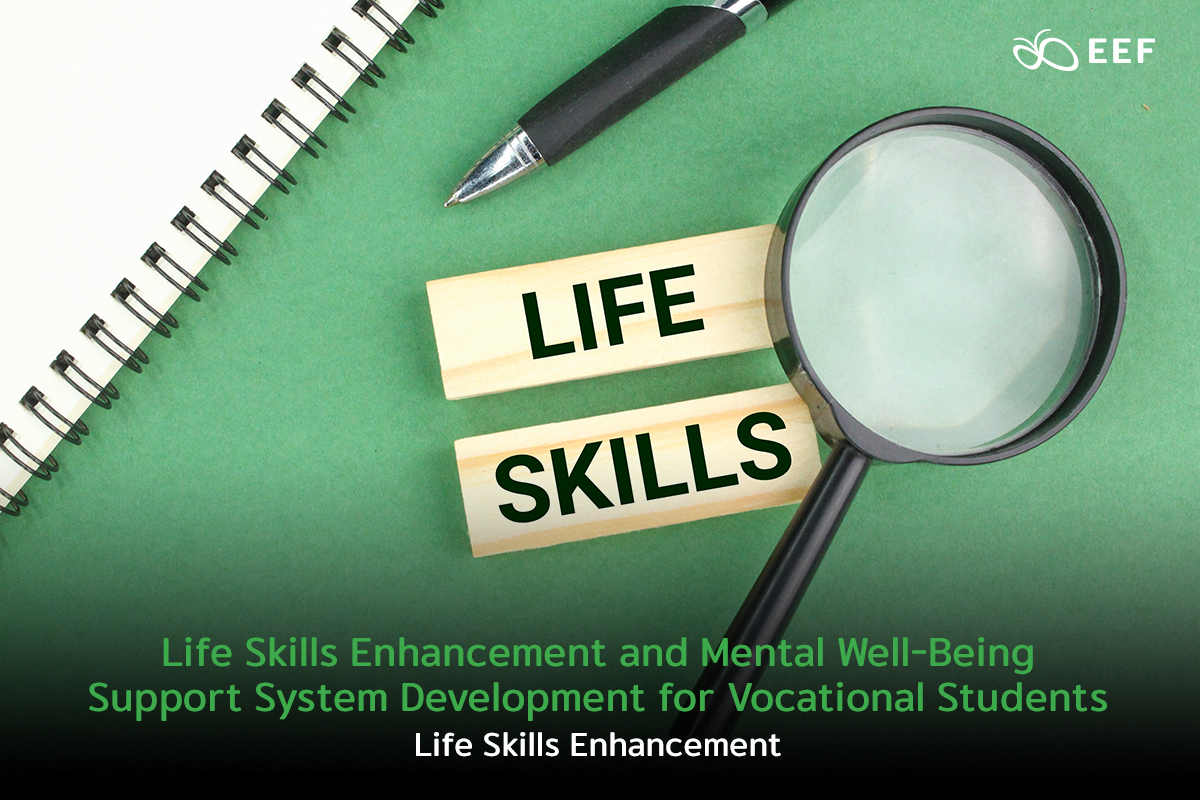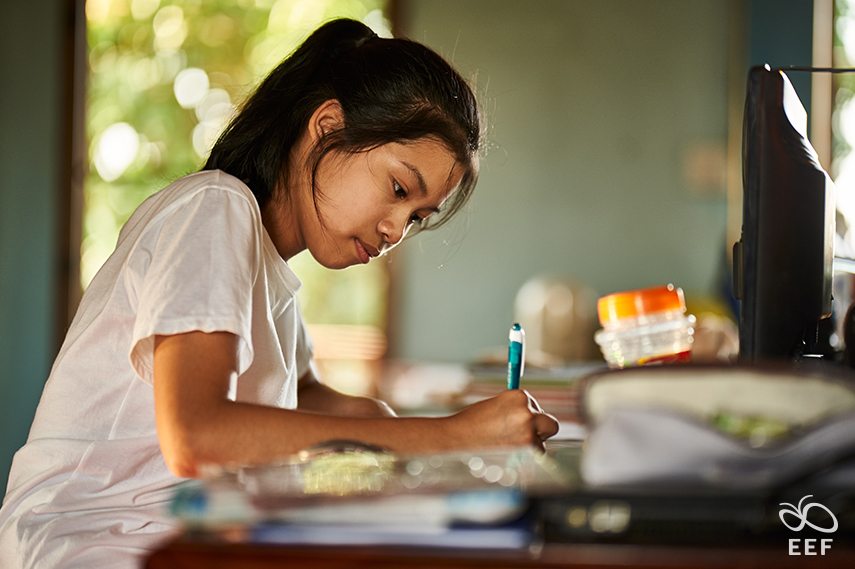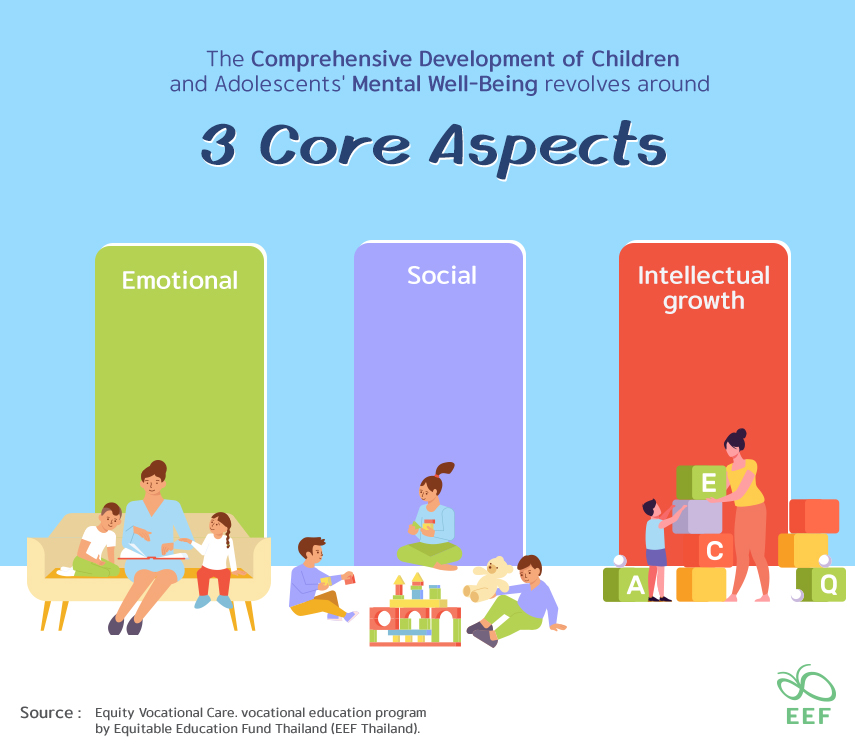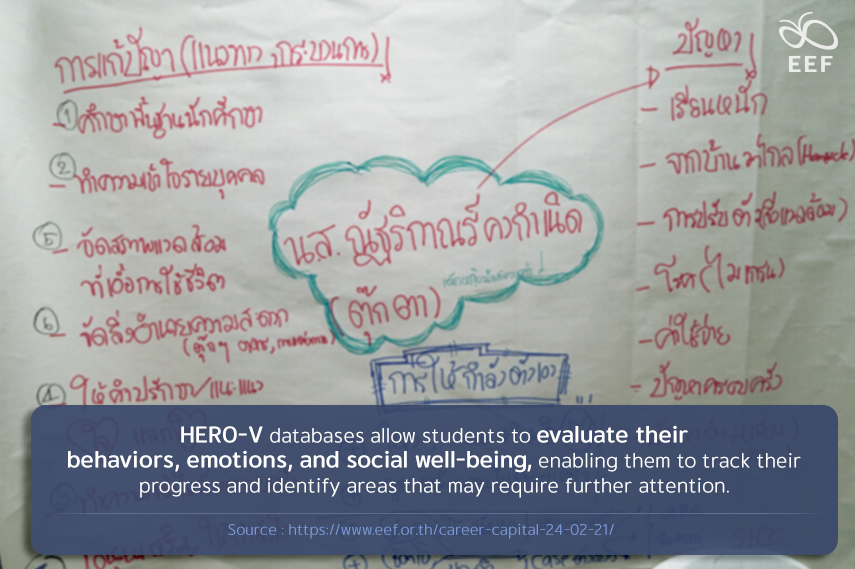
Thailand has taken a significant step towards bridging the gap between education and workforce demands with the recent establishment of the “Life Skills Enhancement and Mental Well-Being Support System Development for Vocational Students” project. This initiative has come in response to the growing recognition of vocational education as a crucial contributor to a skilled workforce among adolescents aged 15 and above.
Under Thailand’s 20-Year National Strategy (2017-2036), the importance of human resource development has taken center stage. As part of this strategy, the Equitable Education Fund (EEF) Thailand was established under the Equitable Education Fund Act of 2018. The EEF is dedicated to reducing educational disparities and enhancing the quality and efficiency of teaching by providing financial support to financially disadvantaged students through the distribution of scholarships.

By far, a total of 4,503 students with potential but limited financial resources have been selected based on the criteria established by the EEF, with 2,053 students selected in 2019 and 2,450 students in 2020. This initiative has been implemented in 56 vocational schools across 44 provinces during the 2023 academic year.
Recognizing the need to align the existing education pipeline with the evolving market demands, the Thai government has set a target ratio of 45:55 for vocational to general education students. This strategic move aims to ensure that the skills and qualifications acquired by students align with the actual workforce requirements, ultimately leading to a more skilled and competitive workforce.
However, it is crucial to address the challenges faced by vocational students, who are at a higher risk of engaging in risky behaviors compared to their counterparts in general education. These risky behaviors include smoking, drinking, suicidal tendencies, and unsafe sexual activities. To tackle these concerns effectively, the EEF, in collaboration with the Institute of Child and Adolescent Mental Health, has launched the “Life Skills Enhancement and Mental Well-Being Support System Development for Vocational Students” project.
The primary objective of this project is to develop a system for empowering vocational institutions in promoting life skills and providing support to their students. By providing support and guidance to teachers, the project aims to enhance their capacity to offer counseling and guidance on students’ mental well-being and behavior modification. This comprehensive approach seeks to facilitate the holistic development and transformation of students during their crucial adolescent years, nurturing resilience and empowering them for a brighter future.

The comprehensive development of children and adolescents’ mental well-being revolves around three core aspects: emotional, social, and intellectual growth. Each aspect is supported by specific life skills and social and emotional learning (SEL) strategies. In terms of emotions, life skills, such as coping with emotions and stress, self-awareness, and self-esteem, play a vital role, along with SEL strategies, such as self-awareness and self-management. Socially, life skills like empathy and effective communication, along with SEL components, such as social awareness and relationship-building skills, including resisting social pressure and negotiating, contribute to their well-being. Intellectual development involves life skills, such as critical thinking, problem-solving, decision-making, and creative thinking, which are complemented by responsible decision-making guided by reason and accountability within the realm of SEL. By nurturing these dimensions, the holistic growth and flourishing of children and adolescents’ mental health can be holistically fostered.

Efforts to enhance life skills and support vocational education students are implemented through a cohesive system. First, vocational students undergo assessment and training in life skills programs to identify their specific needs and areas for improvement in life skills. This assessment ensures that they are adequately prepared for their future careers. Next, teachers focus on evaluating scholarship students who come from disadvantaged backgrounds or are facing crises. They address risks such as absenteeism or potential harm to provide necessary support and intervention.
Meanwhile, students have access to counseling services through hotlines or online platforms to address their mental health concerns, and teachers themselves receive online training and practical workshops to equip them with the necessary knowledge and skills to design and deliver effective life skills programs and offer guidance and support to students throughout the process. In more complex cases, teachers can consult experts through telephone or online channels for additional assistance. For severe cases that require specialized care, students are referred to professionals in adolescent mental health within hospital systems.

Additionally, regular assessments using the HERO-V database allow students to evaluate their behaviors, emotions, and social well-being, enabling them to track their progress and identify areas that may require further attention. Fidelity assessments are also conducted to evaluate the effectiveness of the implemented programs. Through this comprehensive system, the well-being of vocational students is promoted, and they receive the appropriate assistance they need for their personal and professional development.
The “Life Skills Enhancement and Mental Well-Being Support System Development for Vocational Students” project will primarily benefit teachers and staff from the 56 participating vocational schools, comprising a total of 180 individuals. Additionally, students receiving scholarships from two 5-year funding categories, totaling 4,503 students, will directly benefit from this comprehensive initiative.
Thailand’s commitment to the development of vocational education and the implementation of targeted projects like this demonstrates its dedication to nurturing a skilled workforce equipped to meet the demands of the future. By investing in the holistic development of vocational students and providing the necessary support systems, Thailand is fostering a resilient and capable workforce, poised to excel in a rapidly changing global landscape.
Implemented in 56 vocational schools across 44 provinces during the 2023 academic year, the “Life Skills Enhancement and Mental Well-Being Support System Development for Vocational Students” project is making a direct impact on the lives of students. It has been developed as part of the ongoing efforts outlined in the 20-Year National Strategy and aligns with the mission of the EEF to ensure equitable access to quality education.
Source: Equity Vocational Care. a vocational education program by Equitable Education Fund Thailand (EEF Thailand).
https://sites.google.com/view/cctcamri/%E0%B8%AB%E0%B8%99%E0%B8%B2%E0%B9%81%E0%B8%A3%E0%B8%81

